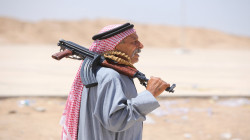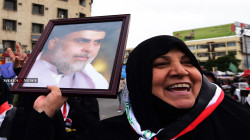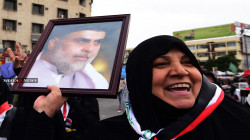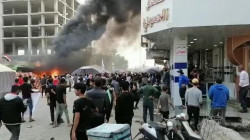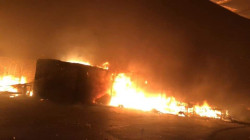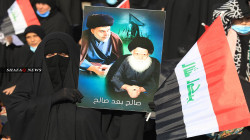Independent MP: to keep al-Kadhimi's government unsupervised, al-Sadr pressuring the judiciary to suspend its work
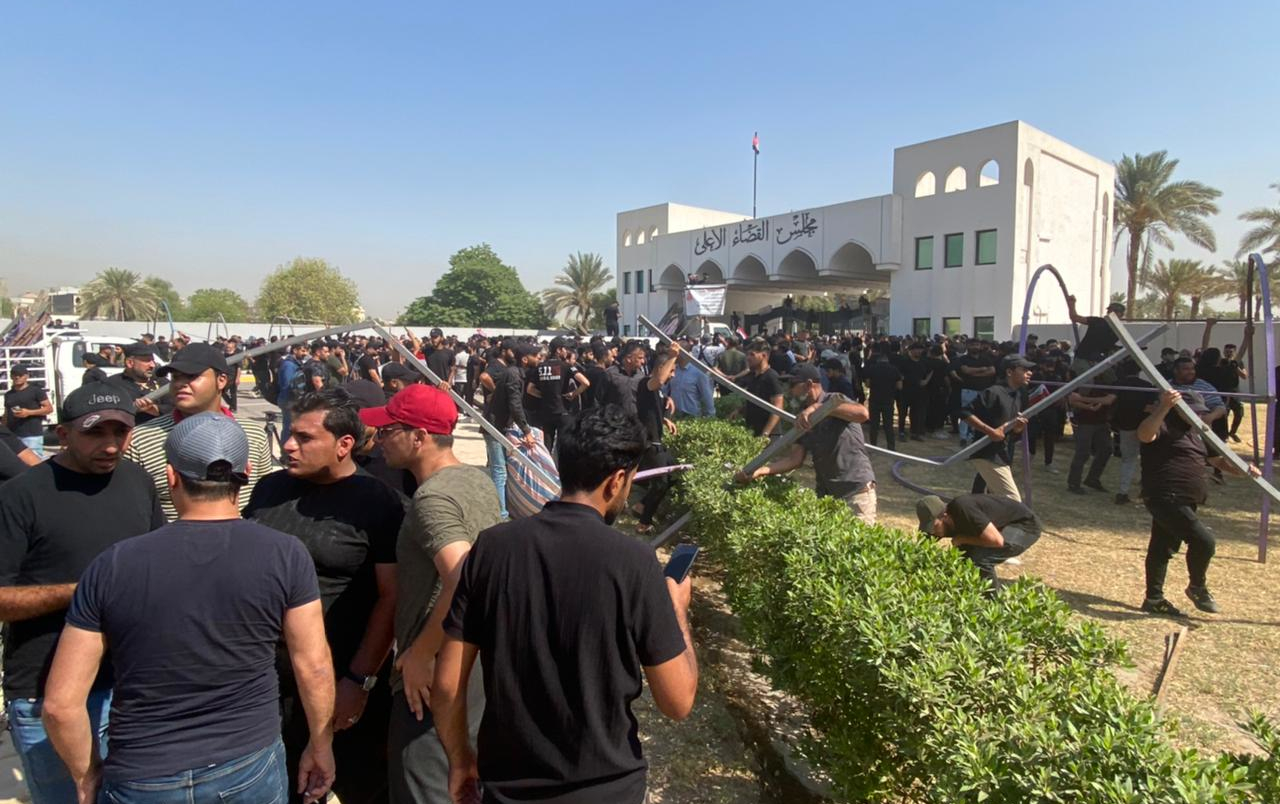
Shafaq News/ Independent lawmaker Bassem Khashan on Tuesday dismissed the Sadrist movement's protests near the Supreme Judicial Council as an attempt to pressure the Judicial body into suspension and keep Mustafa al-Kadhimi's government unsupervised.
"The judicial authority has explained on many occasions that dissolving the parliament by a judicial decision is unconstitutional," Khashan told Shafaq News Agency, "the Sadrists protests near the Supreme Judicial Council are only an attempt to force such a decision."
"I was the first to call for dissolving the parliament when the parliament was intransigent about continuing its work. However, issuing the decision under these circumstances will be deemed as a recession to the public pressure, which casts doubts on its validity."
" The judicial authority can protest this pressure by suspending its work in Iraq. However, this seems to be the goal of [Muqtada] al-Sadr to keep Mustafa al-Kadhimi's without a parliamentary and Judicial supervision."
"Since the Kurdistan region has its own judicial council, the governorates of South and Mid-Iraq will take the biggest blow," he continued, "the relation between al-Sadr and al-Kadhimi is not a secret anymore. There is an attempt to overhaul the constitution and law. This will only leave a massive chaos because the other parties, Kurds and Sunni Arab, stand in the grey area."
"Unfortunately, all the political parties -including the Coordination Framework, Sunni, and Kurds-are standing idly. This will go down the history chronicles," he concluded.
The expert in Iraqi law, Ali al-Tamimi, defended "peaceful demonstrations as a legitimate mean for expressing legitimate demands."
"Civil disobedience is a legitimate right guaranteed by Article 2 of the Universal Declaration of Human Rights," he added, "Article 38 of the Constitution and law no. 19 of 2004 frankly stipulated that the people have the right to gather and demonstrate."
"Article 364 of the Iraqi penal code does not apply to this situation because it relates to harm to the country's interest or leaving the work. It has nothing to do with demonstrating."
Iraq's judiciary suspended its activities on Tuesday after supporters of the powerful Shi'ite cleric Moqtada al-Sadr stepped up pressure on it to dissolve parliament, as one of the worst political crises since the U.S.-led invasion dragged on.
The populist leader has helped inflame tensions in Iraq in recent weeks by commanding thousands of followers to storm and occupy parliament, preventing the formation of a government nearly 10 months after elections.
Iraqi Prime Minister Mustafa al-Kadhimi, who cut short a trip to Egypt to deal with the crisis, has urged all sides to remain calm and renewed calls for a national dialogue.
Sadr's followers began gathering for protests outside the headquarters of the Supreme Judicial Council and Federal Supreme Court in Baghdad. The followers have sent threats by phone, the judiciary said in a statement.
"(We) will suspend court sessions as a protest against this unconstitutional behaviour and will hold the government and political parties which are backing this move fully responsible for all the results," the statement added.
Sadr, who fought U.S. troops and went on to become a kingmaker in Iraqi politics, has called for early elections and unspecified changes to the constitution after withdrawing his lawmakers from parliament in June.
His political opponents, mostly fellow Shi'ites backed by Iran, have refused to accede to his demands, raising fears of fresh unrest and violence in a conflict-weary Iraq.
Iraq's 10-month standoff since the election is the longest stretch without a fully functioning government in the nearly two decades since Saddam Hussein was overthrown in a U.S.-led in 2003.
Sadr was the biggest winner of last year's election but was unable to form a government along with Kurdish and Sunni Muslim Arab parties, excluding his Iran-backed Shi'ite rivals.
